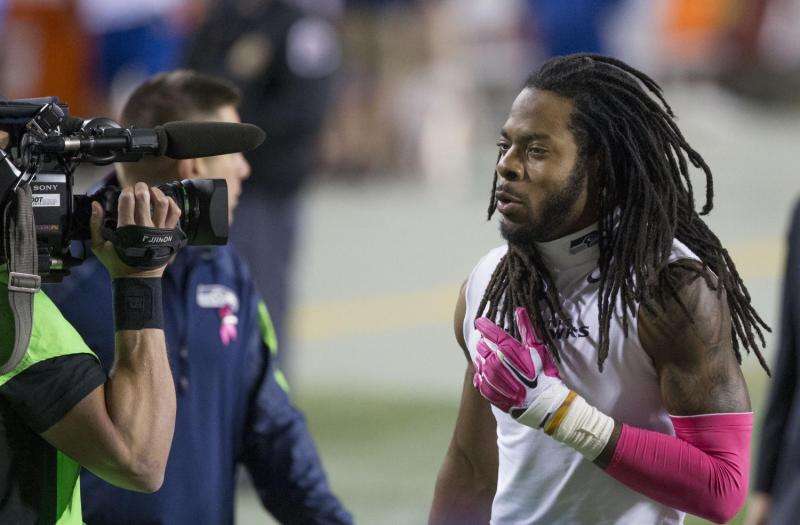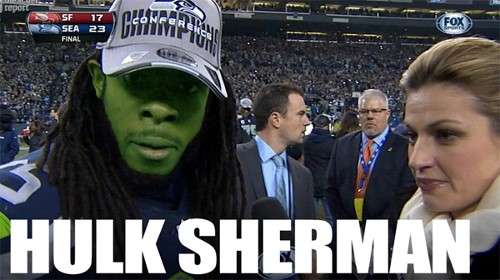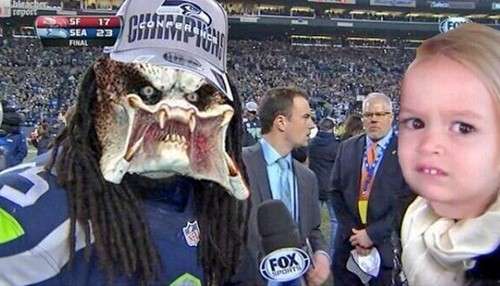Media, Twitter users racially stereotyped Richard Sherman after controversial interview

In a brief interview following a 2014 National Football League playoff game, African-American football player Richard Sherman made controversial statements about his opponent and his own football prowess on national television. Those statements created a racially charged debate in the news and social media. Researchers at the University of Missouri School of Journalism have analyzed the public reaction to Sherman's remarks and have found that, in general, professional media defended Sherman while the majority of Twitter commenters denounced Sherman's remarks. Margaret Duffy, a professor and chair of strategic communication at the MU School of Journalism, says her study shows the need for the media and the general public to be aware of stereotypes so they do not respond in ways that may be harmful.
"It was very interesting to observe this national conversation occur in the media and social media in real time," Duffy said. "However, the amount of racial stereotyping present in the discussion was concerning. Twitter users, who largely denounced Sherman's remarks, used terms and distributed images that had negative racial connotations. Even sports journalists, who largely defended Sherman, did so using stereotypes of race and masculinity as well."
For the study, Duffy and her research team analyzed the tone and content of media headlines, as well as tweets from the general public following Sherman's remarks. While the mainstream news headlines defended Sherman, the researchers found the media employed stereotypes such as hyper-masculinity and football culture in their defenses, such as "Sherman was raised in a football culture where chest-thumping is second nature."
Duffy found that Twitter users cast Sherman as dangerous and threatening, particularly toward the white, female reporter interviewing him. The researchers found hundreds of memes, or images spread over the Internet depicting certain cultural information, created by Twitter users that depict Sherman in a negative light. Duffy says the public reaction to Sherman's remarks revealed interesting information about the ways journalists and society discuss racial issues in public forums.
"This sort of thing happens all the time in the coverage of sports," Duffy said. "The behaviors and backgrounds of athletes are highlighted differently based on the race of the athlete. The article points out that sports are a big part of our culture and society as a whole. If people are having these same sorts of responses to athletes, then they are certainly having them about other racial issues as well. This isn't just trivial entertainment, it is important for how people in our society view others, particularly those of other races."
This study will be published in an upcoming issue of the Howard Journal of Communication.
-

An example of one of the many Richard Sherman memes Duffy found that was created by Twitter users following Sherman's controversial interview. -

Another example of one of the many Richard Sherman memes Duffy found that was created by Twitter users following Sherman's controversial interview.
Provided by University of Missouri-Columbia


















